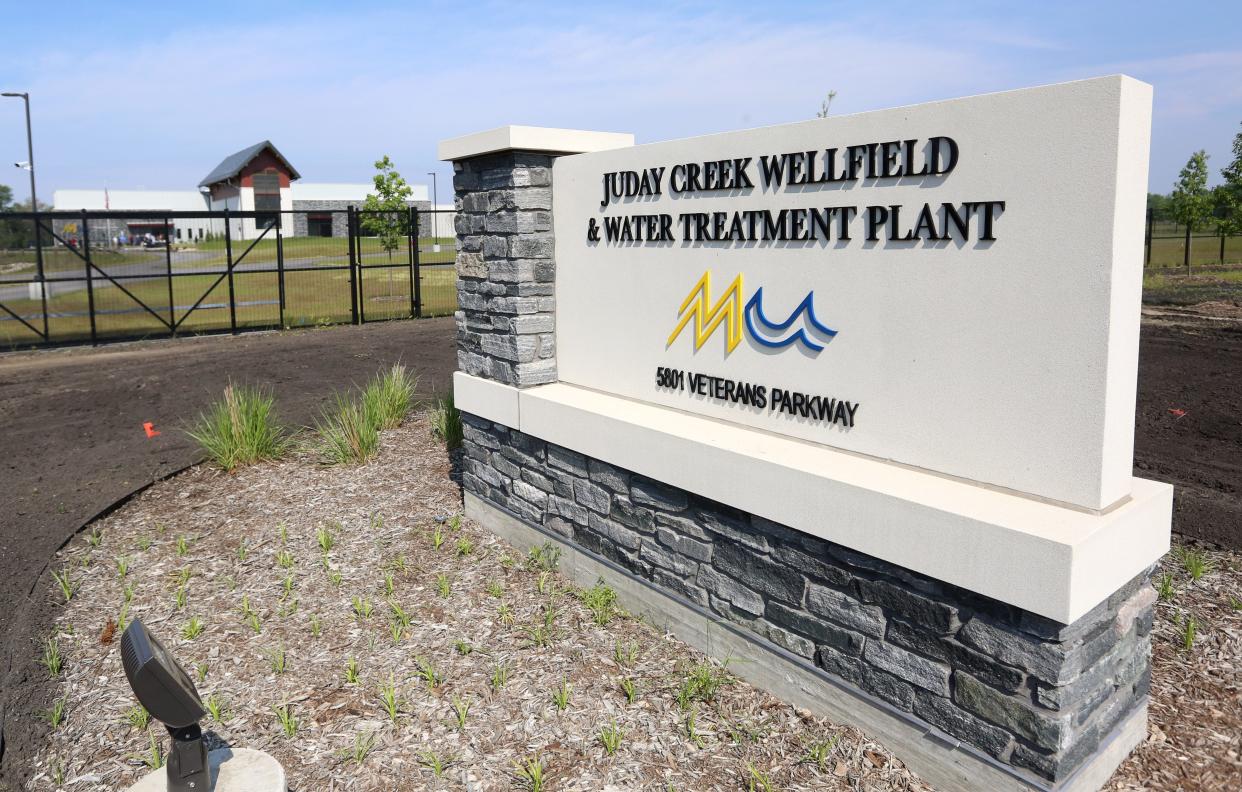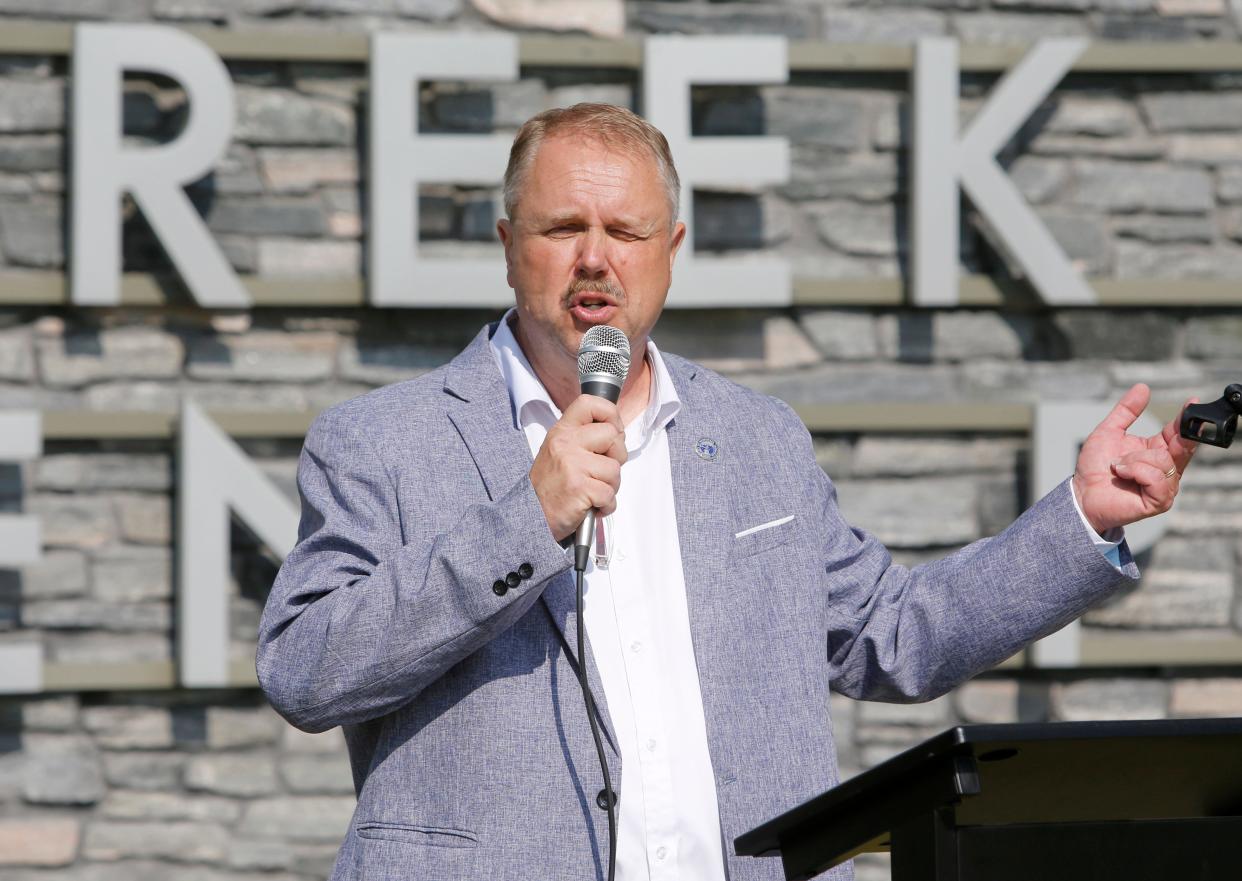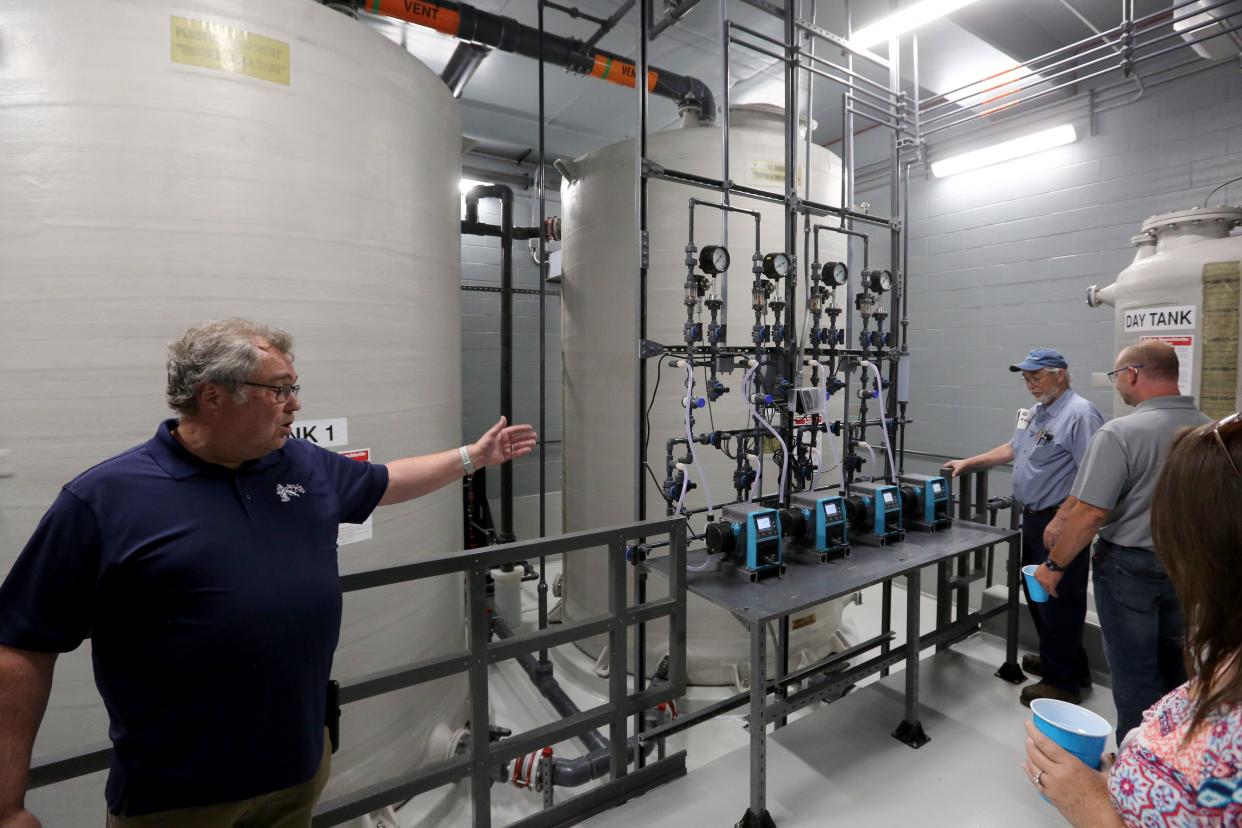South Bend, Mishawaka start testing for PFAS as challenge to EPA rules sought in courts

City of South Bend officials say they've taken "proactive" measures against toxic so-called “forever chemicals” that the Environmental Protection Agency will begin regulating in drinking on Tuesday. The city reports that it tested and found that PFAS, or per-and polyfluoroalkyl substances, exceeded the EPA's brand new standards in 12 out of the city's 29 wells.
After that, the city immediately took “passive” steps to limit the contaminant, like reducing the use of wells where it had been detected, Public Works Director Eric Horvath said through a city spokeswoman.
So, for now, he said, the city meets the EPA’s standards.
Viewpoint: Firefighters protect us, time for Hoosiers to return the favor
PFAS, dubbed "forever chemicals" for their longevity, are a group of about 15,000 man-made substances. They have been known to cause various forms of cancer, birth defects, liver and kidney damage, obesity and diabetes, cardiovascular disease and other health effects, according to the Centers for Disease Control and Prevention.
It's unclear at this time what steps the city will take to update the 12 wells that do not meet the EPA's new standards. But the federal agency estimates that treatment and other modifications required to meet the standards will cost the nation's water utilities an estimated $1 billion per year, and customers may have to foot the bill.
The EPA standard for PFAS in drinking water is now 4 parts per trillion ― down from 70 ppt ― that's four drops in 20 Olympic-size swimming pools, according to an oft-cited statistic.
By 2027, municipal water utilities must submit an average of four quarterly tests for PFAS to the EPA.
For the future, Horvath said the city is working with national experts at the construction engineering firm Black & Veatch to seek the best PFAS treatment technology — ultimately, to meet the EPA standards. Until it finishes that study and decides what treatments to use, the city won’t be able to estimate how much it will cost.
To pay for treatment, Horvath said the city will rely on money that will be recovered from lawsuits that South Bend filed against the manufacturers of PFAS chemicals. The suits seek compensation so that the city can upgrade its facilities to mitigate PFAS.
EPA: New standards will reduce PFAS toxin in drinking water, save thousands of lives
Will the cost ultimately affect what city residents pay in their utility bills? That depends, in part, on how much the city recovers from the PFAS lawsuits, Horvath said.
PFAS have been detected at The South Bend International Airport, and officials there took steps to minimize the contamination. But it's possible some of those toxins, which have been in the area for decades, have seeped into the local aquifer, where area residents get their drinking water, a groundwater expert said.
Mishawaka waits on courts
While Mishawaka has also done its first round of required tests for PFAS, the city is now taking a wait-and-see approach just after two trade groups filed a petition for the U.S. Court of Appeals to review the EPA rule.
Filed on June 7, the American Water Works Association and the Association of Metropolitan Water Agencies argued that the EPA didn’t use the “best available science” to craft the rule and that the rule “underestimates” the cost of complying with it.
Dave Majewski, water division manager for Mishawaka Utilities, said he’s been advised to wait six to eight months for something to emerge from the court challenge.

“We don’t want to jump in right now," he said. “We want to get some guidance on the sampling aspects.”
The city's water is currently in compliance with the PFAS regulations, he said. The initial tests were a composite of treated water that was sampled. The city didn't test each well, Majewski said, though it may yet do that in the future.
At 4 parts per trillion, he said the testing is so sensitive that outside factors can give a false positive, for example, if an employee uses nitrile gloves to conduct the test.
Majewski said the city is intent on protecting its water and public health, but it wants to ensure the science is right and the methods are consistent before doing so.
“Right now, we’re working with our engineers to see where we go from here,” he said.

Some of the possible methods for removing PFAS, he said, might include granular activated carbon filters, among others, but he said there’s no way at this point to know that would cost.
The flow of contaminants, especially in such small quantities, isn’t always consistent. That explains why cities need to submit an average of four quarterly test results for PFAS by 2027.
“We’re in compliance now,” he said. “But we could get hit with PFAS later.”
Some of Mishawaka’s first rounds of testing were at its substation near Eberhart Golf Course. The others were at Gumwood Road, which will close in the next couple of months as it’s replaced by the recently opened water treatment plant at Juday Creek.
South Bend Tribune reporter Joseph Dits can be reached at 574-235-6158 or jdits@sbtinfo.com.
This article originally appeared on South Bend Tribune: PFAS tests in South Bend Mishawaka as EPA rules challenged in court
